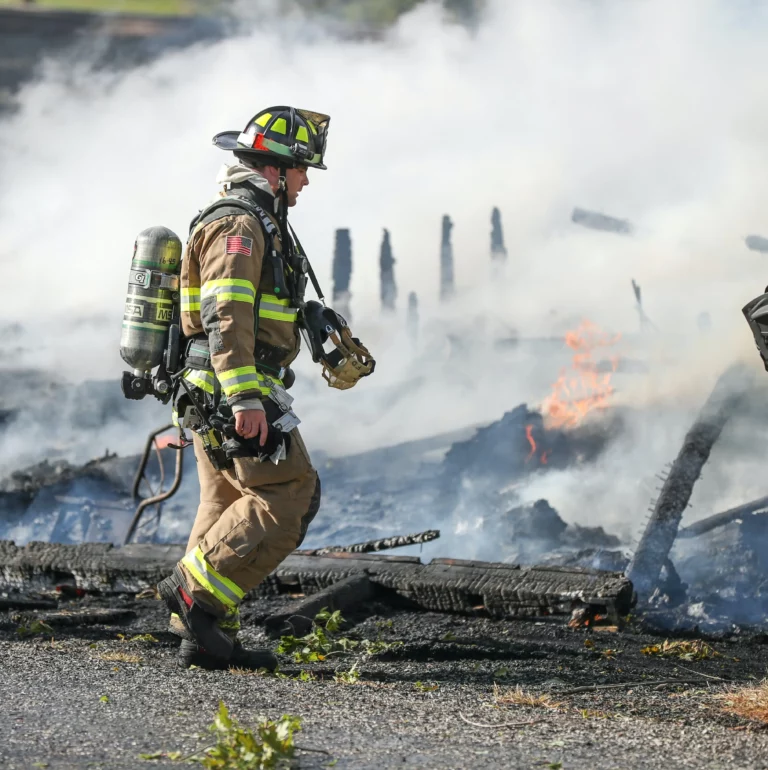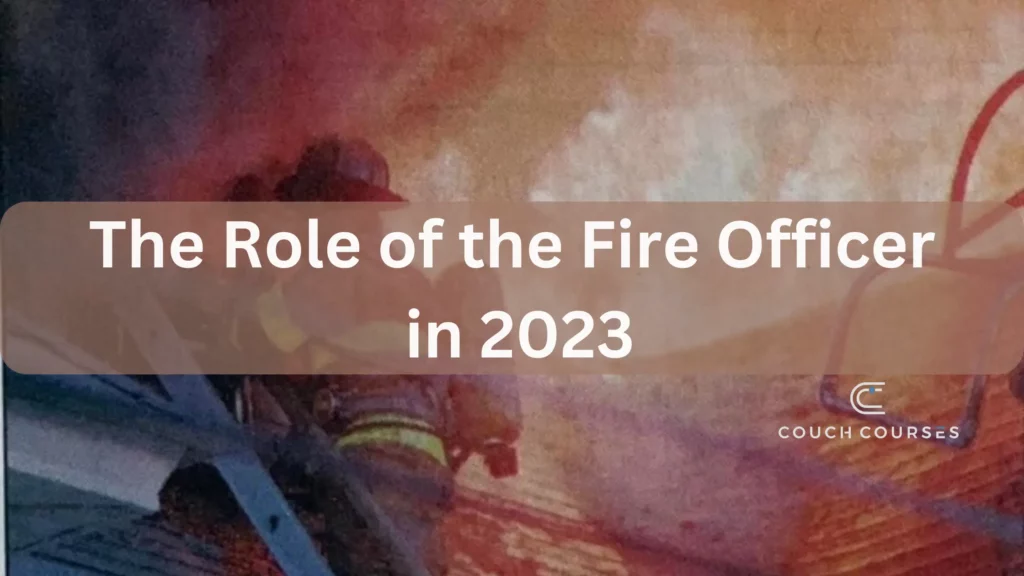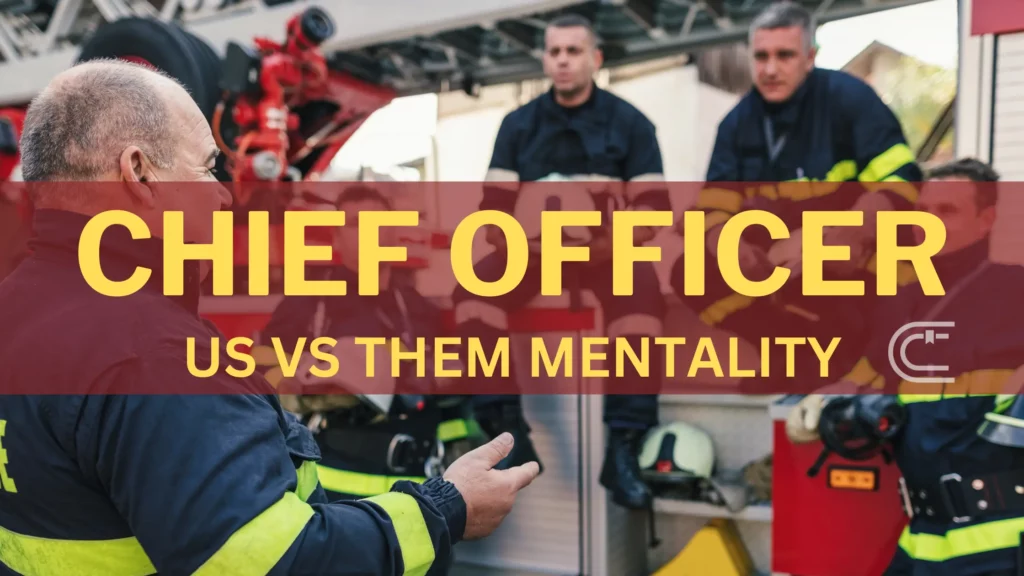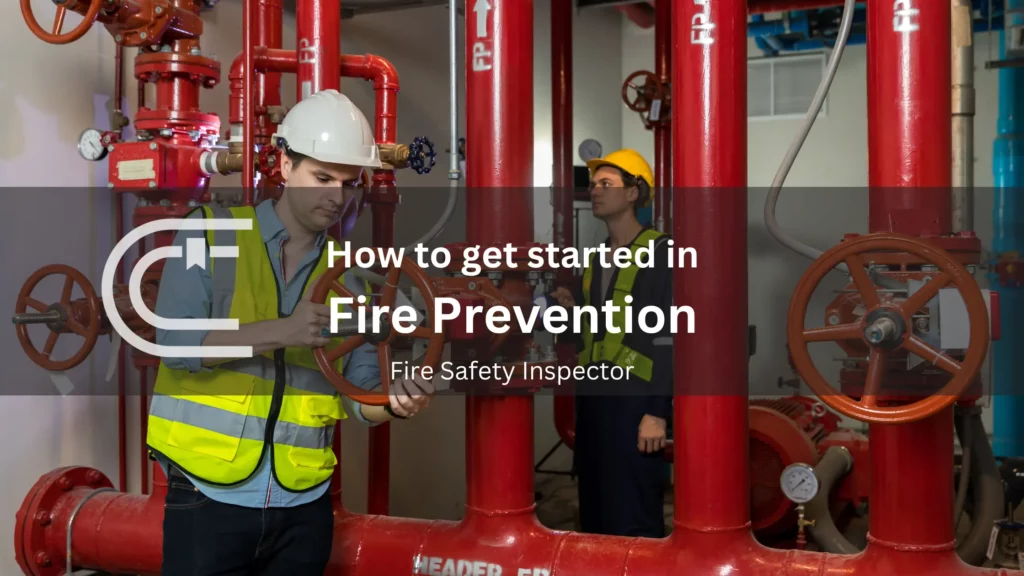12 Tips to building trust as a new fire officer

Building trust as a new fire officer begins many, many years before you even begin to think about testing for that position. I tell the fire academy students I teach that your interview begins now and it only ends at retirement.
Having been in the Fire Service for 12 going on 13 years in South West Florida, I can tell you your reputation is like a checking account. It takes forever to build, and only one screw-up to lose it all.
We all know most of us did not get into the fire service for accolades or our reputations. However, trust needs to be bred with your fellow partners in a dangerous career such as ours. This comes in consistency in training, ethics, decision-making, motivation, and job knowledge.
Be “that guy/gal,” the one studying, working harder than everyone else, volunteering for the assignments, and being knowledgeable at your job. When the time comes to promote to an officer position, you will find that the transition is easier, as you have already earned respect and trust.

Tips to begin with:
As the 2pac song goes “All Eyez On Me.” Once you become the official officer, you will be the chain link between your line-level employees and administration, and vice-versa. Internal customers: employees, chiefs, administration, and external customers: citizens, other agencies, patients, and investigators will all be watching your actions. There may even be people who wish you do not succeed watching every action you take. Here are some steps to build that trust
- Set clear expectations: When communicating with your crew, always have clear expectations. Some officers find this easy to communicate, but consistency is the key concept of this one. If some days something is important and others are not, these are not “CLEAR” expectations. Another great suggestion here is to ask what the expectations are of your crew as their officer. Remember, we all have room to grow and learn.
- Learn the crew: Learning what dynamics are happening within the current team environment is critical in integrating and leveraging your crew’s talents. Before the fire service, I worked as a retail manager and subscribed to strength-based organizational methods. The basic premise is to leverage individuals’ strengths and place them in positions to succeed versus always focusing on improving weaknesses. More can be found on this topic on Gallup’s website.
- Train: Teach new things, relearn old things, and give ownership based on individuals’ strengths. Remember the feeling you have after a great fire class? That reinvigoration and excitement? Share your passion, and remind everyone of our purpose, mission, and how we integrate into our departments’ mission plans.
- Be transparent: When you have to make a decision or follow a standard, explain the “why.” Even if the administration makes a rule you may disagree with, you can voice those concerns up the chain of command and try to obtain knowledge to create buy-in, but those concerns should never come back down.
- Follow through with your expectations: Follow those rules you enforce and live them. If your new department rule is to wear a polo during business hours, set an example by wearing the same polo in line with the rule. Live the “why,” If you expect it of your crew, you should expect the same of yourself first. They WILL notice.
- Have their backs: We are a team, support them, advocate for them, and be their voice. Some of the best leaders I have worked for, the number one statement I have heard about them was, “they would always go to bat for you.” Trust will be reciprocated.
- Be decisive and stick with your decisions: Do not be afraid to make a decision; use the knowledge and experience you have. That is why you have been entrusted as an officer. If it is a good call, stick with it. Always be open to input and feedback. Listening is extremely important as well. I have run many 911 calls where I have changed a tactic or plan based on input from my team. Foster an environment where people feel comfortable sharing with you. The by-product of this will be that if crew members share an idea and you stand by your decision, there will be no question about how your team is expected to perform.
- Seek feedback: Always be open to input from your peers, team, and leadership. You have to be able to put the ego aside and take criticism and feedback. It is a great idea to anonymously survey your team, asking for feedback about your leadership. Remember, reviews are not just from you to your team but also from them to you!
- Reflect: Self-reflection is an amazing tool. We do after-incident reports for a reason, do not be afraid to take a hard look at your own actions and decisions. Set your ego aside and be honest.
- Do the chores: Do the daily chores with your crew, don’t be afraid to get dirty. No one likes an officer who hides in his/her office all shift. Never give a task that you would not be willing to do yourself.
- Never stop learning: Take classes, read books, and continue to grow as a firefighter, leader, and human. Our job is to be the best we can be physically and mentally.
- Be humble: We all were probationary firefighters at one time. We were all new, treat everyone with respect, and realized we all still have a ton to learn. We all run into that one call that reminds us we DO NOT know everything.
Look for our next blog dedicated to more tips and suggestions for the aspiring Fire Officer. If you are interested in becoming a fire officer in Florida, look at this previous blog.





